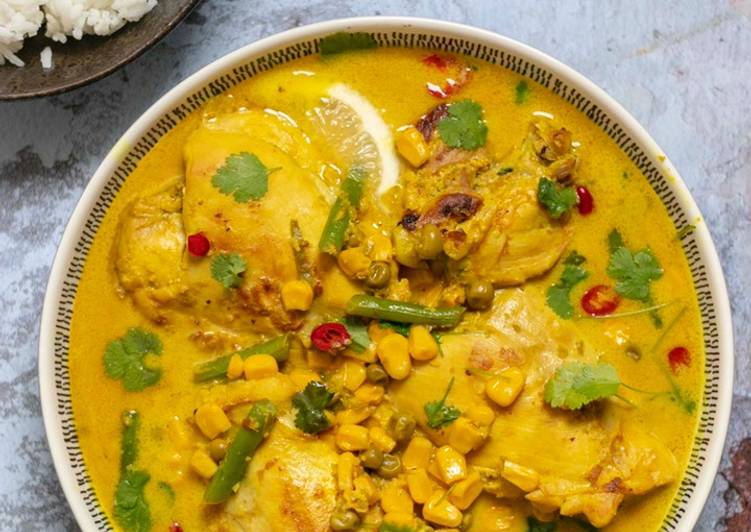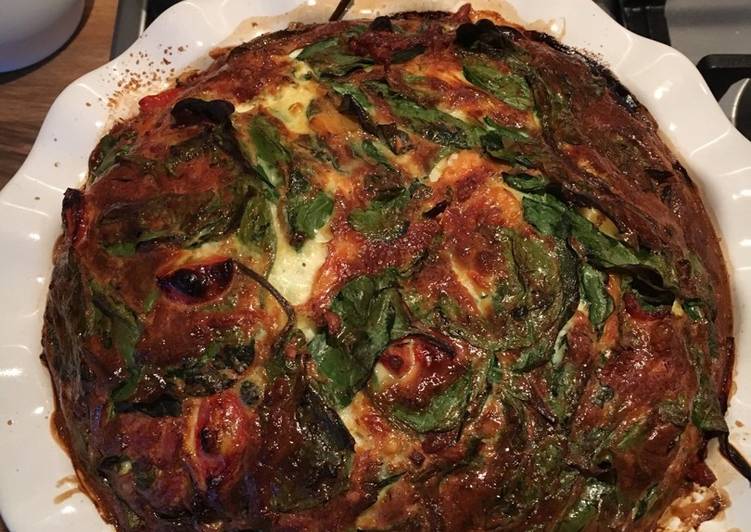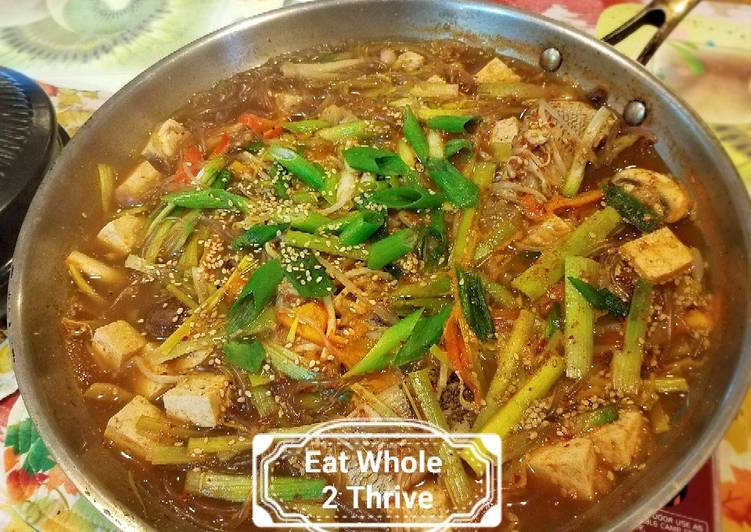
Hey everyone, it’s me, Dave, welcome to our recipe site. Today, I will show you a way to prepare a distinctive dish, kuku paka - african chicken curry. It is one of my favorites food recipes. This time, I am going to make it a bit tasty. This is gonna smell and look delicious.
Kuku paka - African chicken curry is one of the most popular of recent trending foods on earth. It’s simple, it is quick, it tastes delicious. It is appreciated by millions every day. Kuku paka - African chicken curry is something which I have loved my entire life. They are fine and they look wonderful.
This east African dish is one of the easiest "curries" you could ever make. Kuku is the Swahili word for chicken, and paka is the Bengali word for delicious. Kuku Paka - Curry of East African Origin. Kuku paka is a chicken and coconut curry popular across East Africa, such as Malawi, Tanzania, Kenya, and Uganda.
To get started with this recipe, we must first prepare a few ingredients. You can cook kuku paka - african chicken curry using 14 ingredients and 6 steps. Here is how you can achieve that.
The ingredients needed to make Kuku paka - African chicken curry:
- Make ready 600 g chicken tight
- Make ready 2 tbsp minced ginger
- Prepare 1 tbsp minced garlic
- Get 1 tsp chilli powder or paprika
- Make ready 2-3 big green chilli
- Get 1 tin coconut milk
- Prepare Tin sweet corn (I got mix peas and sweet corn so I use that)
- Get 1 lemon
- Prepare 1 tsp turmeric
- Make ready Some salt
- Prepare 1 handful green beans
- Get 1 red chilli (finely chopped) for garnish
- Get 1 handful coriander
- Get 1-2 tbsp vegetable cooking oil
For authentic flavor, grill the chicken pieces before stirring them into the simmering sauce. If you like, you can also use Some recipes add potatoes or hard-boiled eggs to the curry. The potatoes can be cooked ahead, cut into chunks and stirred into the curry toward the end. The word 'kuku' means chicken in Swahili but the origin of the work paka is unclear, some say that it denotes dishes made with coconut milk, however paka is also the Punjabi word for delicious, which would be appropriate given that East Africa is a pool that combines African and Indian influences.
Instructions to make Kuku paka - African chicken curry:
- Prep your ingredients, if you use chicken tight with bone I would leave the bone in and take chicken skin out.
- Marinate your chicken with garlic, ginger, green chilli, a pinch of salt and turmeric. Leave it for 15-20 min.
- On a griddle pan, high heat, spray some vegetable oil and place chicken on the griddle pan leave them cook about 3-5 min on each side or until chicken nice and golden brown on both side.
- On a saucepan, medium heat, add coconut milk in and wait until coconut milk start boiling, add the rest of curry paste from marinate your chicken and you can add some water on the griddle pan to get those lovely sauce out and pour it in the saucepan too. Add chicken and green beans then sweet corn.
- Add some lemon juice, seasoning with salt and add some coriander. Stir well and turn off the heat
- Put some finely sliced red chilli on top before serve
The potatoes can be cooked ahead, cut into chunks and stirred into the curry toward the end. The word 'kuku' means chicken in Swahili but the origin of the work paka is unclear, some say that it denotes dishes made with coconut milk, however paka is also the Punjabi word for delicious, which would be appropriate given that East Africa is a pool that combines African and Indian influences. Kuku Paka is a chicken dish with a coconut-based curry and is also called "kuku na nazi". It has Arabic, Indian and African influences. The dish is particularly popular in the East African coast and among the Indian communities living in Kenya, Tanzania and Uganda.
So that’s going to wrap it up for this special food kuku paka - african chicken curry recipe. Thank you very much for your time. I am confident that you can make this at home. There is gonna be interesting food at home recipes coming up. Don’t forget to bookmark this page in your browser, and share it to your family, colleague and friends. Thank you for reading. Go on get cooking!


